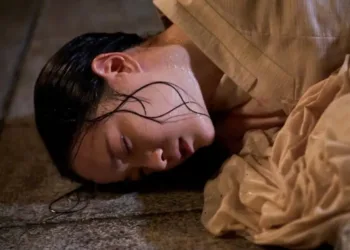If you’ve just finished watching Netflix’s “Aileen: Queen of the Serial Killers,” which explores the life and crimes of Aileen Wuornos through archival footage and death-row interviews, you’re probably craving more compelling true crime content. Here are seven must-watch documentaries that deliver the same intensity and psychological depth.
Table of Contents
Aileen: Queen of the Serial Killers- Overview of Featured Documentaries
| Documentary | Year | Focus | Platform |
|---|---|---|---|
| Conversations with a Killer: The Ted Bundy Tapes | 2019 | Serial killer psychology | Netflix |
| Conversations with a Killer: The Jeffrey Dahmer Tapes | 2022 | Mass murder case | Netflix |
| My Father: The BTK Killer | 2025 | Family perspective | Netflix |
| Night Stalker: The Hunt for a Serial Killer | 2021 | California murders | Netflix |
| The Times Square Killer | 2021 | New York serial murders | Netflix |
| Crime Scene: The Vanishing at the Cecil Hotel | 2021 | Mystery investigation | Netflix |
| Murdaugh Murders: A Southern Scandal | 2023 | Family crimes | Netflix |
Top Documentary Picks

1. Conversations with a Killer: The Ted Bundy Tapes
This documentary features recordings of Ted Bundy from prison, combining his personal recollections with archival footage to piece together one of the darkest crime sprees in American history. Like the Aileen documentary, it offers unprecedented access to the killer’s own voice and perspective. Learn more about psychological profiling in criminal investigations.
2. Conversations with a Killer: The Jeffrey Dahmer Tapes
This documentary sheds new light inside the mind of one of America’s most notorious serial killers, featuring Dahmer talking about his crimes in a bone-chilling, matter-of-fact tone. The series provides the same unsettling intimacy found in Aileen’s death-row interviews.

3. My Father: The BTK Killer
This documentary tells the story through the eyes of Kerri Rawson, who learned in 2005 that her father, Dennis Rader, was the BTK Killer who committed 10 gruesome murders between 1974 and 1991. The family perspective adds emotional weight similar to Aileen’s troubled childhood narrative.
4. Night Stalker: The Hunt for a Serial Killer
This gripping four-episode series details the heinous crimes of Richard Ramirez, who preyed on residents of Los Angeles and San Francisco between June 1984 and August 1985. The documentary focuses on the investigation’s human impact, much like Aileen’s story.

5. The Times Square Killer
This series examines Richard Cottingham, dubbed “The Times Square Killer” or “The Torso Killer,” a seemingly normal family man responsible for over a dozen murders in New York and New Jersey during the 1970s. It humanizes victims while exploring the killer’s double life.
6. Crime Scene: The Vanishing at the Cecil Hotel
This documentary explores the tragic case of Elisa Lam, acknowledging it’s likely a sad case of someone experiencing a mental health crisis who didn’t get needed support. Like Aileen’s story, it examines how mental health intersects with tragedy.
7. Murdaugh Murders: A Southern Scandal
The two seasons delve into how a prominent South Carolina family used and abused their wealth and privilege to the extreme, showcasing how power dynamics affect justice—a theme present in Aileen’s treatment by the legal system.
Why These Documentaries Resonate
What makes “Aileen: Queen of the Serial Killers” compelling is its exploration of how childhood abuse and mental health issues shaped Wuornos’s life, presented through her own words and archival material. Each recommended documentary shares this depth of psychological exploration.
For more true crime content, check out our coverage of upcoming documentaries and investigative journalism features.
FAQs
What makes “Aileen: Queen of the Serial Killers” different from other documentaries?
Directed by Emily Turner and produced by BBC Studios Documentary Unit with NBC News Studios, the documentary features never-before-seen death row interviews with Aileen Wuornos conducted by filmmaker Jasmine Hirst, along with powerful archival footage. It presents a complex, contradictory portrait rather than a simple narrative.
Are these documentaries suitable for all audiences?
No. These documentaries contain sensitive topics including real crime scene photos, descriptions of childhood sexual abuse, and detailed accounts of brutal violence. They’re recommended for mature audiences interested in understanding criminal psychology and systemic issues in justice.








